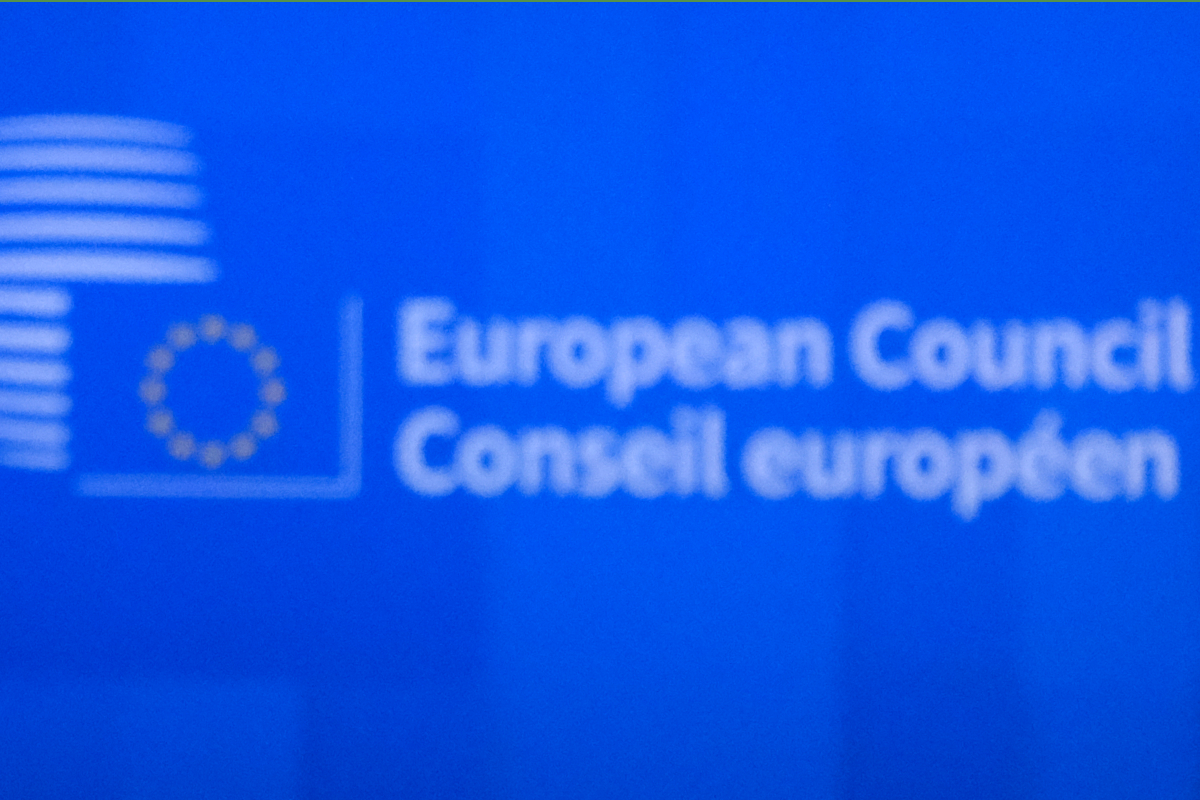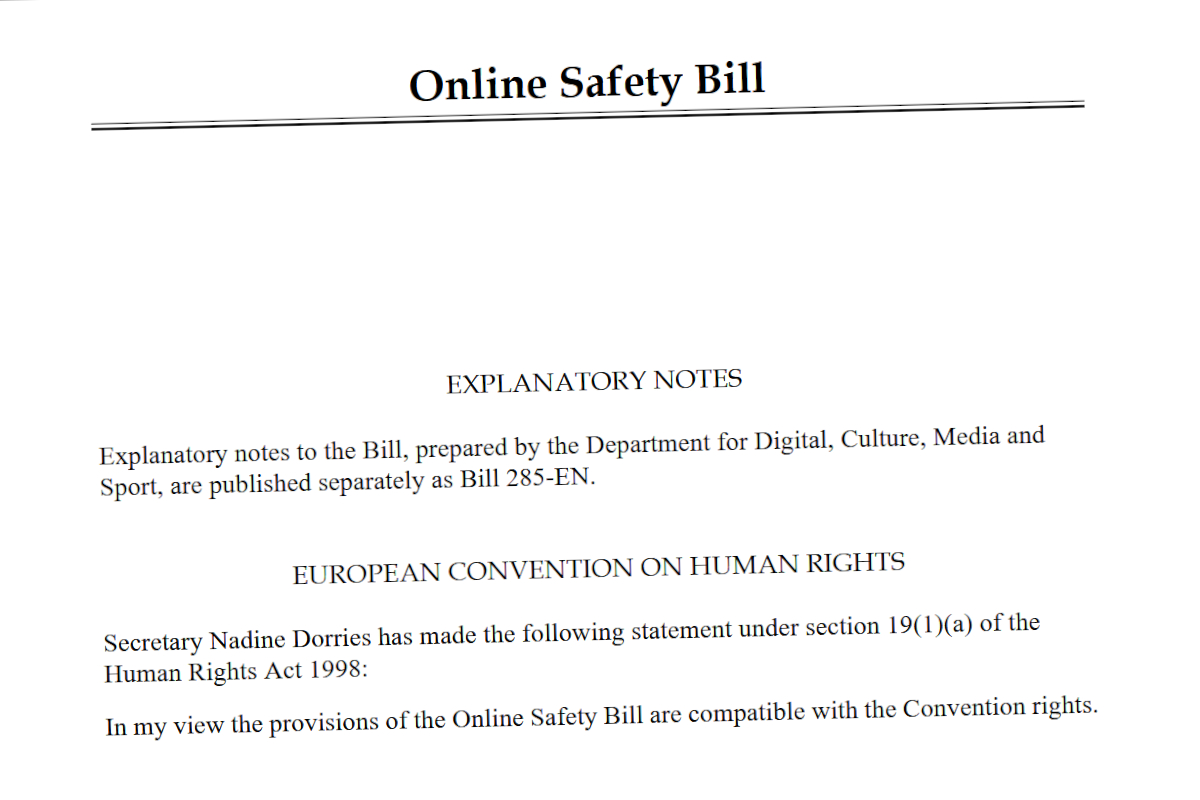Tracking the Pact: New Presidency proposals on "solidarity and support measures in a situation of crisis or instrumentalisation"
Topic
Country/Region
27 June 2023
The latest Council Presidency compromise text of the Crisis and Force Majeure Regulation includes new provisions on "solidarity and support measures in a situation of crisis or instrumentalisation," and changes to the proposals on the notification and authorisation procedures for member states deemed to be facing a migration "crisis" or the "instrumentalisation of migration".
Support our work: become a Friend of Statewatch from as little as £1/€1 per month.

The latest text (pdf), dated 23 June and intended to be discussed by the JHA Counsellors (Asylum) working group tomorrow, includes an entire new Article 7 (Solidarity and support measures in a situation of crisis or instrumentalisation), changes to Article 8 (Notification procedure), and additions to Article 9 (Authorisation procedure and adoption of implementing acts).
The full text of the articles as included in the Presidency's compromise text is copied below.
The proposed Regulation is intended to allow massive derogations from EU migration and asylum law in cases were it is deemed a member state or states face a situation of "crisis, instrumentalisation and force majeure in the field of migration and asylum."
Text in bold has been added following discussions on the previous version of the text.
Chapter III
Solidarity measures applicable in a situation of crisis or instrumentalisation
Article 7
Solidarity and support measures in a situation of crisis or instrumentalisation
1. Where a Member State is facing a situation of crisis or instrumentalisation, it may request support and solidarity measures from other Member States in order to manage that situation. The Member State facing that situation may request the following types of contributions:
a) relocations, to be conducted following the procedures set out in Articles 57 and 58 of Regulation (EU) XXX/XXX [Asylum and Migration Management],
(i) of applicants for international protection;
(ii) where bilaterally agreed by the contributing and benefitting Member State concerned, of beneficiaries of international protection who have been granted international protection less than three years prior to the adoption of the Council implementing act establishing the Solidarity Pool, or for the purpose of return of illegally staying third-country nationals or stateless persons;
b) responsibility offsets, as referred to in Article 44h of Regulation (EU) XXX/XXX [Asylum and Migration Management] and following the procedure set out in Article 58a thereof;
c) financial contributions aiming at projects that are relevant to address the situation of crisis or instrumentalisation in the Member State concerned or in relevant third countries, in full respect of human rights, to be provided by other Member States following the rules set out in Article 44(i) of Regulation (EU) XXX/XXX [Asylum and Migration Management];
d) alternative solidarity measures as referred to in Article 44a(2)(c) of Regulation (EU) XXX/XXX [Asylum and Migration Management], specifically needed to address the crisis or the instrumentalisation situation and following the rules set out in Article 44j(2) and (3) of Regulation (EU) XXX/XXX [Asylum and Migration Management]; such measures shall be counted as financial solidarity, and their concrete value shall be established based on objective criteria;
e) measures aimed at responding to the situation of crisis or instrumentalisation, including specific measures to support return, through cooperation with third countries or outreach to the relevant third countries;
f) any other measures considered adequate to address the situation of crisis or instrumentalisation and support the Member State concerned.
The Member State facing a situation of crisis or instrumentalisation shall send a reasoned request to the Commission specifying the type and level of solidarity measures needed.
The Member State facing that situation may submit this reasoned request together with the request referred to in Article 9(1).
3. Following the submission of the reasoned request referred to in the first subparagraph of paragraph 2, the Commission, in close cooperation with the requesting Member State concerned and relevant Union agencies, shall expeditiously assess the situation and the type and level of the solidarity measures needed and, in consultation with the requesting Member State, prepare, where appropriate, a Solidarity Response Plan indicating the type and level of the solidarity and support measures needed.
4. Where it is established in the Council implementing decision referred to in Article 9(5) that the requesting Member State is facing a situation of crisis or instrumentalisation, the following rules shall apply:
(i) Where the Solidarity Pool under Regulation (EU) XXX/XXX [Asylum and Migration Management] contains unallocated solidarity pledges or solidarity pledges that have not been implemented yet and are available, the Member State facing a situation of crisis or instrumentalisation shall make use of the Solidarity Pool. Where as a result of the requesting Member State making use of those pledges, the solidarity needs of other Member States that are benefitting Member States pursuant to Articles 44c or 44d of the Regulation (EU) XXX/XXX [Asylum and Migration Management] cannot be addressed, the High level Migration Forum shall be reconvened as matter of urgency, following the procedure set out in Article 44g of the Regulation (EU) XXX/XXX [Asylum and Migration Management].
(ii) Where the Solidarity Pool does not contain enough solidarity pledges to cover the needs identified in the Solidarity Response Plan referred to in paragraph 2, the Member States facing a situation of crisis or instrumentalisation shall make use of contributions contained in the Council implementing decision as referred to in Article 9(5)(d).
(iii) Where the relocation pledges or responsibility offsets are below the relocation needs established in the Solidarity Response Plan included in the Council Implementing Decision, the contributing Member States shall take responsibility for applications for international protection for which the Member State facing a situation of crisis or instrumentalisation has been determined as responsible up to the relocation needs identified in the Solidarity Response Plan established in the Council Implementing Decision. Article 44h(5) to (7) of Regulation (EU) XXX/XXX [Asylum and Migration Management] shall apply mutatis mutandis.
Chapter IV
Procedural rules and final provisions
Article 8
Notification procedure
1. Where a Member State is facing a situation of crisis, force majeure or instrumentalisation which renders it impossible to comply with the time limits in Article 27 of Regulation (EU) XXX/XXX [Asylum and Migration Management], that Member State shall notify the Commission that it is applying the derogation provided for in Article 2.
2. The derogation provided for in Article 2 may only be applied pursuant to paragraph 1 of this Article for as long as the situation of crisis, force majeure, or instrumentalisation exists and in any event no longer than two weeks. Where such situation no longer exists the Member State concerned shall, as soon as possible, notify the Commission of the termination of the situation. After such notification, the derogations shall no longer be applied.
Article 9
Authorisation procedure and adoption of implementing acts […]
1. A Member State […] facing a situation of crisis, force majeure or instrumentalisation […], may, given those exceptional circumstances, request the authorisation to apply the relevant derogations provided for in Articles 2 to 6.
2. […] Where the requesting Member State submits to the Commission conclusive evidence demonstrating the existence of the conditions referred to in Article 1(2) or Article 1(3) or of a situation of force majeure, the Commission shall, on the basis of that evidence, without delay, make a proposal for an appropriate Council Implementing Decision referred to in paragraph 5 including the relevant derogations required for the specific situation.
3. The Commission proposal referred to in paragraph 2 shall include:
(a) a description of the situation faced by the Member State concerned and whether it is a situation of crisis, instrumentalisation or force majeure;
(b) where relevant, the relevant derogations required for the specific situation that the Member State concerned should be authorised to apply;
(c) where relevant, the Solidarity Response Plan and the relevant solidarity measures and their level required for the specific situation while ensuring the respect of the full discretion of Member State in choosing between the types of solidarity measures.
When setting up the solidarity needs of the Member State facing a situation of crisis or instrumentalisation, the Commission shall take into account whether the Member State concerned is already a benefitting Member State pursuant to Articles 44c and 44d of Regulation (EU) XXX/XXX [Asylum and Migration Management] and the level of unallocated pledges or solidarity pledges not yet implemented and available.
Where the Solidarity Pool does not contain enough solidarity pledges to cover the needs identified in the Solidarity Response Plan referred to in Article 7(2), additional needs shall be included in the proposal.
4. The Commission may also make such a proposal where it considers it appropriate on the basis of […]information provided by the requesting Member State and any other information available to it.
5. As a matter of urgency, the Council shall assess […]the proposal […]and depending on the outcome of such assessment adopt an Implementing Decision authorising the Member State concerned to apply the specific derogations provided for in Articles 2 to 6 and allowing the Member State to benefit from the specific solidarity measures provided for in Article 7.
The Council Implementing Decision shall:
(a) establish the existance of a situation of crisis, instrumentalisation or force majeure as appropriate;
(b) identify the Member State or Member States affected by the situation referred to in point (a) of this paragraph and benefitting from the measures set out in the Decision;
(c) where relevant, the specific derogations provided for in Articles 2 to 6 that the Member State concerned is authorised to apply;
(d) where relevant, the Solidarity Response Plan, including the specific solidarity measures provided for in Article 7 required to address the situation and their levels, as well as the specific contributions by each Member State not subject to the specific situation referred to in point (b) of this subparagraph pledged in accordance with the mandatory fair share set out in Article 44k of the Regulation (EU) XXX/XXX [Asylum and Migration Management].
In implementing letter d, contributing Member States shall have full discretion in choosing between the types of solidarity measures or a combination of them. However, only those listed in Article 7) 1 a) b) c) d) shall count towards the mandatory fair share. Member States pledging alternative solidarity measures shall indicate their financial value based on objective criteria.
6. The Council Implementing Decision referred to in paragraph 5 shall state the grounds on which it is based, and shall set the date from which the rules laid down in Articles 2 to 7 may be applied, as well as the time period for their application, which shall not exceed an initial period of six months.
In case of instrumentalisation the Decision shall specify the third-country nationals or stateless persons subject to instrumentalisation.
7. The Commission and the Council shall keep the situation of crisis, force majeure or instrumentalisation […] under constant monitoring and review. Where the Commission considers it appropriate on the basis of relevant information, it may propose the repeal of the Council Implementing Decision referred to in paragraph 4 or the adoption of a new Council Implementing Decision authorising the amendment or prolongation […] of the specific derogations referred to in Articles 2 to 7 for a period, which shall not exceed an additional period of six months. Where the requesting Member State submits conclusive evidence to the Commission demonstrating the continued existence of the conditions referred to in Article 1(2) or (3) or force majeure, the Commission shall, on the basis of such evidence, submit a proposal for a new Council Implementing Decision to amend or prolong the specific derogations referred to in Articles 2 to 7 for a period, which shall not exceed an additional period of six months. The Member State concerned shall provide the Commission specific information needed for it to carry out this review and to make the proposal for repeal or prolongation as well as any other information the Commission may request.
8. Member States shall continue for the the maximum period as referred to in Article 5 to apply the procedural derogations set out in the Council implementing decision referred to in paragraph 4 in respect of those applicants whose applications for international protection have been registered within the period during which those derogations may be applied until a final decision is taken on their application or until the third-country nationals or stateless persons concerned are returned in accordance with Article 5.
9. In exercising their powers and carrying out their responsibilities pursuant to this Article, the Commission and the Council shall ensure at all times that the principle of proportionality is respected.
Documentation
- Proposal for a REGULATION OF THE EUROPEAN PARLIAMENT AND OF THE COUNCIL addressing situations of crisis, instrumentalisation and force majeure in the field of migration and asylum - Presidency compromise text (Council doc. 10463/1/23 REV 1, LIMITE, 23 June 2023, pdf)
Our work is only possible with your support.
Become a Friend of Statewatch from as little as £1/€1 per month.
Further reading

Tracking the Pact: Presidency compromise text of the crisis and force majeure Regulation
The Council recently approved its negotiating position on two of the key measures that are part of the Pact on Migration and Asylum, but it's not over yet.

EU: Asylum and borders proposals: the only attack taking place is the attack on peoples’ rights
In response to the arrival of thousands of people at the EU's borders with Belarus, the European Commission has published a raft of new proposals that would weaken asylum rights and strengthen border surveillance and controls. Described as “temporary” on 1 December, proposals published this week would allow their enactment whenever the Council deems migrants are being “instrumentalised” to “attack” the European Union.
Spotted an error? If you've spotted a problem with this page, just click once to let us know.

